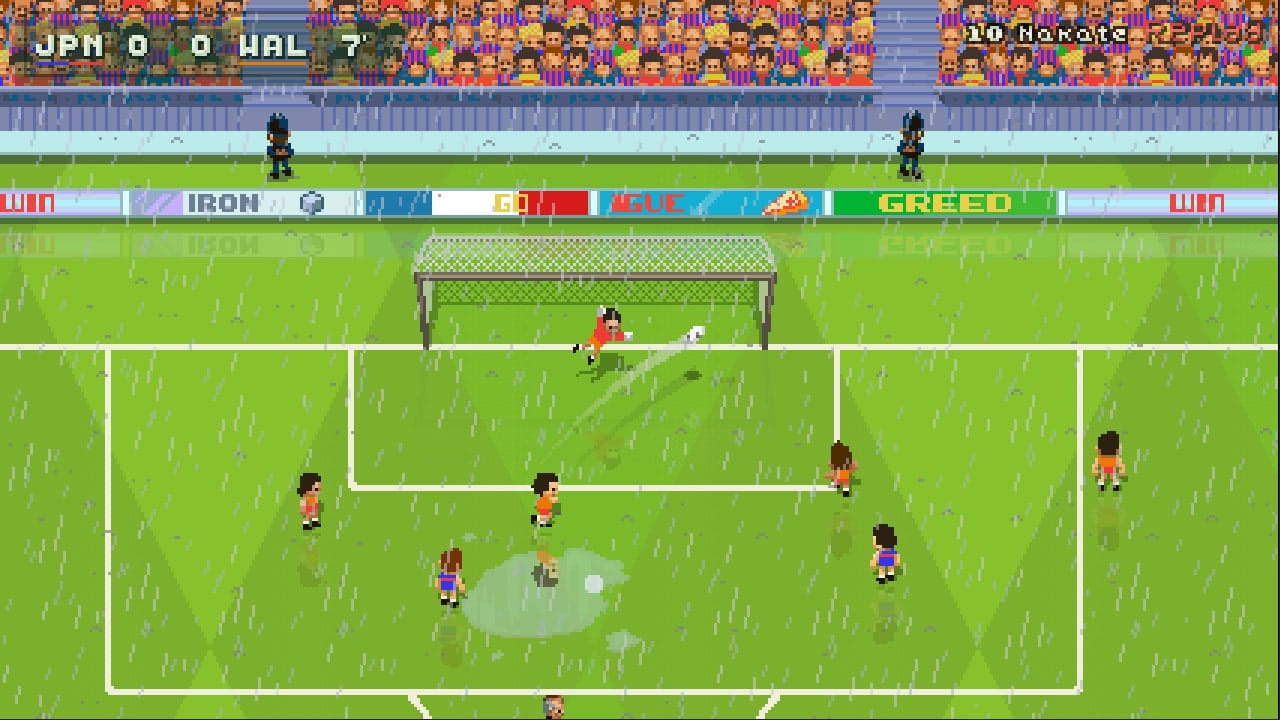
🕹️ The Arcade Sports Revival: Why REMATCH Matters for the Genre
The return of fun-first sports gaming
🎮 Remember When Sports Games Were Fun?
There was a time when sports games prioritized pure enjoyment over statistical accuracy. Games like NBA Jam, NFL Blitz, and FIFA Street dominated arcades and living rooms with their over-the-top action and accessible gameplay.
Then something changed. The industry shifted toward hyper-realism, annual releases, and complex simulation mechanics.
REMATCH is bringing the fun back.
📈 The Simulation Takeover
What Happened to Arcade Sports?
For the past decade, major sports franchises have chased one goal: perfect realism.
The casualties:
- Accessibility – Complex controls intimidate newcomers
- Creativity – Realistic physics limit wild possibilities
- Pure Fun – Simulation accuracy over entertainment value
- Innovation – Annual releases discourage experimentation
The Problems with Pure Simulation
- Steep learning curves that exclude casual players
- Overwhelming complexity in controls and systems
- Pay-to-win mechanics that replace skill with spending
- Identical yearly releases with minimal innovation
🎯 What Makes Arcade Sports Special
🚀 Instant Gratification
Arcade sports games get you into the action immediately. No tutorials, no complex setups, no studying playbooks. Just pure, immediate fun.
🎪 Exaggerated Action
- Impossible moves that look incredible
- Over-the-top celebrations and reactions
- Spectacular effects that amplify excitement
- Fast-paced gameplay without realistic delays
🤝 Social Gaming
Arcade sports excel at bringing people together:
- Easy for anyone to pick up and play
- Competitive without being intimidating
- Perfect for parties and casual sessions
- Focus on fun over technical mastery
🏆 The Golden Age Examples
🏀 NBA Jam (1993)
- "He is on fire!" became iconic
- Simplified controls anyone could master
- Outrageous dunks defied physics
- Local multiplayer dominated living rooms
🏈 NFL Blitz (1997)
- No penalties, no rules – pure chaos
- Late hits encouraged after the whistle
- 30-yard first downs for constant action
- Arcade-perfect balance of skill and spectacle
⚽ FIFA Street Series (2005-2012)
- Street football culture brought to life
- Skill moves and flair over tactical realism
- Small-sided games with constant action
- Style points mattered as much as goals
🎮 Why REMATCH Represents a Revival
🔄 Back to Basics Philosophy
REMATCH strips away the complexity that has plagued modern sports games:
- Simple controls with deep mechanics
- No player stats affecting performance
- Pure skill-based competition
- Fast-paced matches without downtime
🎨 Arcade Aesthetic
- Vibrant, stylized graphics over photorealism
- Exaggerated animations that feel impactful
- Spectacular effects for goals and skills
- Character-driven rather than brand-focused
🕹️ Modern Arcade Design
REMATCH takes classic arcade principles and applies modern game design:
- Balanced competitive play
- Online multiplayer infrastructure
- Seasonal content updates
- Skill-based progression
🌟 Why This Revival Matters
🚪 Lowering Barriers to Entry
Arcade sports games welcome everyone:
- New players can compete immediately
- No need to study real sport tactics
- Fun takes priority over authenticity
- Social gaming becomes accessible again
🎯 Focusing on Core Gameplay
Without the pressure of perfect simulation, developers can focus on:
- Responsive controls that feel great
- Balanced mechanics for fair competition
- Creative features that enhance fun
- Innovative ideas without realistic constraints
🔥 Rekindling Gaming Passion
Many players have lost interest in sports games due to:
- Overwhelming complexity
- Predatory monetization
- Lack of innovation
- Competitive barriers
Arcade sports can bring them back.
🎪 The Broader Gaming Landscape
🕹️ Indie Arcade Renaissance
Recent indie successes show appetite for arcade-style games:
- Rocket League – Cars playing football
- Gang Beasts – Physics-based party fighting
- Fall Guys – Arcade-style battle royale
- Among Us – Simple social deduction
🎮 AA Game Opportunities
REMATCH proves there is space between massive AAA and tiny indie games:
- Focused development on core mechanics
- Reasonable budgets allowing creative risks
- Niche audiences that support quality
- Innovation opportunities in established genres
🚀 What Success Looks Like
🏆 For REMATCH Specifically
- Growing competitive scene around skill-based play
- Content creator adoption for entertaining streams
- Community tournaments and events
- Regular updates keeping gameplay fresh
🌍 For the Genre
- More developers exploring arcade sports concepts
- Publisher support for non-simulation approaches
- Player demand for accessible sports gaming
- Innovation in sports game design
🔮 The Future of Sports Gaming
🎯 Room for Both Approaches
The gaming market is big enough for multiple approaches:
- Simulation games for hardcore sports fans
- Arcade games for broader entertainment
- Hybrid approaches combining both elements
- Specialized experiences for different audiences
🎮 What Players Really Want
Recent trends suggest players crave:
- Immediate fun over complex systems
- Fair competition without pay-to-win
- Social experiences that bring people together
- Innovation over annual iterations
🎪 The Bottom Line
REMATCH isn't just another football game – it's a statement that arcade sports deserve a place in modern gaming.
By prioritizing fun over realism, accessibility over complexity, and innovation over tradition, REMATCH could inspire a new generation of sports games that remember why we fell in love with the genre in the first place.
Why This Matters
- Proves market demand for arcade-style sports
- Inspires other developers to take creative risks
- Welcomes new players to sports gaming
- Reminds us that games should be fun first
The arcade sports revival starts with games like REMATCH. The question isn't whether it will succeed – it's how many developers will follow their lead.
Ready to join the arcade revolution?
Sometimes the best way forward is to remember what made us love games in the first place.
